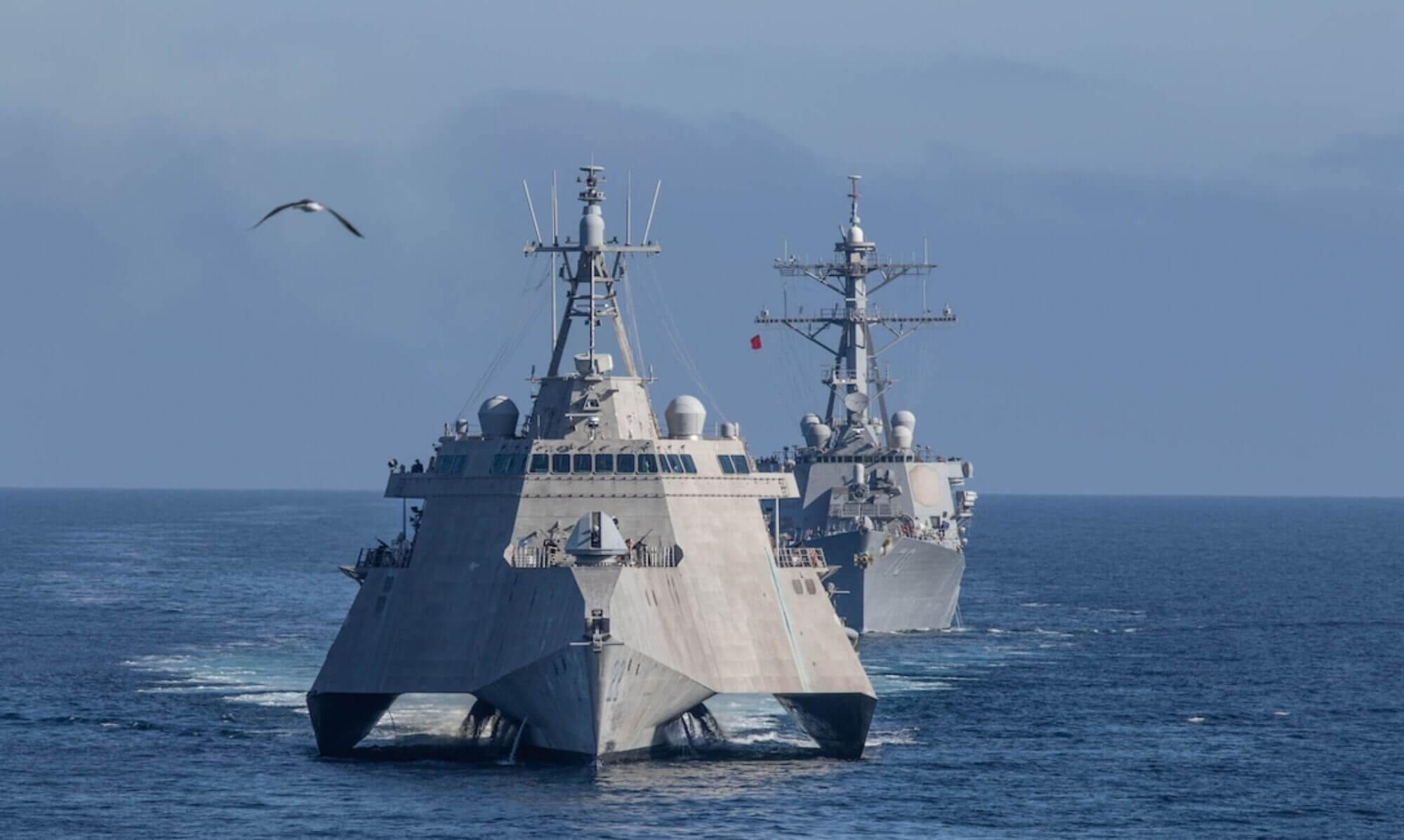Admiral Enrico Credendino warned Italian MPs that Moscow is increasing both the number of ships and its “aggressive attitude” in the Mediterranean Sea. According to Admiral Sanfelice di Monteforte, they’re here to stay Russian ships in the Med are rising in number and adopting an increasingly aggressive posture “that was not usual in the Mediterranean.” Speaking at the Defence Commission of Parliament’s Lower House, the Navy’s Chief of Staff Enrico Credendino warned of a “high risk of incident,” according to press reports at Decode39.
The knock-on effects of the war in Ukraine are reverberating on the sea, he said, noting “the impressive increase in the numbers of the Russian fleet in the Mediterranean and the Black Sea – to a level not even seen in the days of the Cold War.”
Although the high number of ships does not represent a direct threat to Italy’s national territory, Admiral Credendino warned MPs that Russia’s bolstering of forces and assertiveness “increase the tension so much.”
There is an “unstable balance” due to the presence of four allied aircraft carrier groups in the Med – a never-seen-before scenario, composed of the Italian, French, American and Spanish ships – and a Russian naval group with three modern ships posturing in the Ionian Sea, near Italian waters, warned the Navy’s Chief of Staff.
“The most modern ship is […] currently in South Africa and has embarked the hypersonic missiles: we don’t know whether they are effective or not, we will see, but the ship will enter the Mediterranean,” said Admiral Credendino, stressing that the situation “is complex and turbulent.”
The expert’s take. The presence of Russian ships is nothing new, and according to Admiral Ferdinando Sanfelice di Monteforte, a military expert and lecturer in strategic studies, “they will remain in the Mediterranean for quite a long time” with at least two different configurations. “those that seek to intimidate European countries in the Mediterranean, and those following the allied carrier groups in a function of counter-deterrence.”
While it’s reminiscent of the Cold War days, this situation entails a new threat: “the risk of a limited use of force by the Russians, with attacks on gas pipelines or submarine telecommunications cables” that crisscross the Med.
This novel tactic is a consequence of Russia being “in greater difficulty than in the Soviet Union era.”
Meanwhile, this scenario does not facilitate relations between the Northern and Southern shores of the Mediterranean basin. The Southern countries, explained Admiral Sanfelice di Monteforte, are worried “by the noise of sabre rattling” heard over the waters.
Upping the (cyber-)game. Given the political will to increase defence spending to 2% of GDP, the Navy official urged MPs to bridge the Italian Navy’s capability gaps. He also said that the month-long, all-fleet exercise in April would feature “a major cybersecurity training” to test the crew’s response time and the ships’ overall cyber resilience.
Admiral Enrico Credendino, the Navy’s Chief of Staff, warned Italian MPs that Russia is increasing its number of ships and adopting an increasingly aggressive posture in the Mediterranean Sea, which is increasing the risk of an incident. He noted that the impressive increase in the numbers of the Russian fleet in the Mediterranean and the Black Sea to a level not seen even in the days of the Cold War is due to the knock-on effects of the war in Ukraine. While the high number of ships does not represent a direct threat to Italy’s national territory, he warned that Russia’s bolstering of forces and assertiveness is increasing tension. Admiral Credendino also highlighted the risk of limited use of force by Russia, with attacks on gas pipelines or submarine telecommunications cables, which crisscross the Mediterranean. According to Admiral Ferdinando Sanfelice di Monteforte, a military expert and lecturer in strategic studies, the Russian ships will remain in the Mediterranean for quite a long time, with at least two different configurations. Additionally, Admiral Credendino urged MPs to bridge the Italian Navy’s capability gaps and to increase the Navy’s overall cyber resilience, which would be tested in a major cybersecurity training exercise in April writes Marco Battaglia at Decode39, a news and analysis website from italy.

